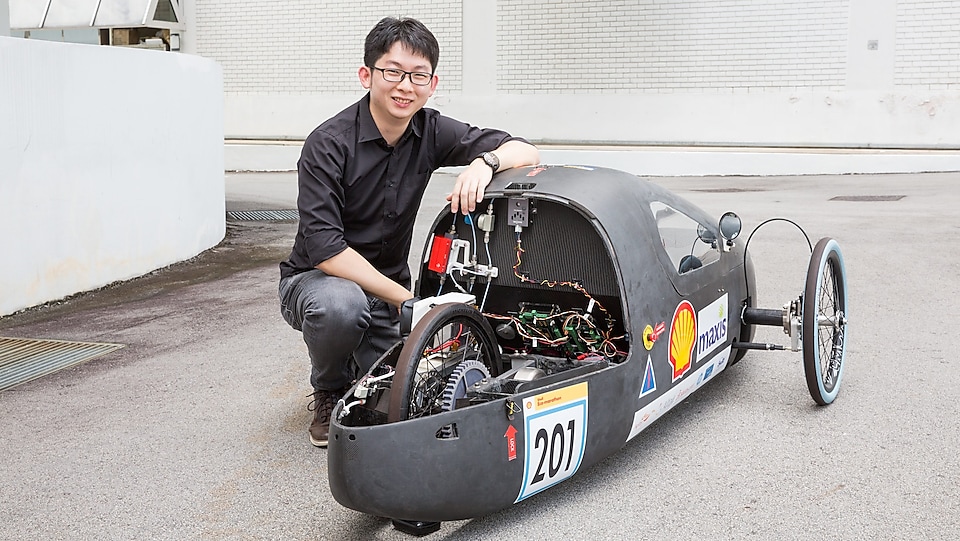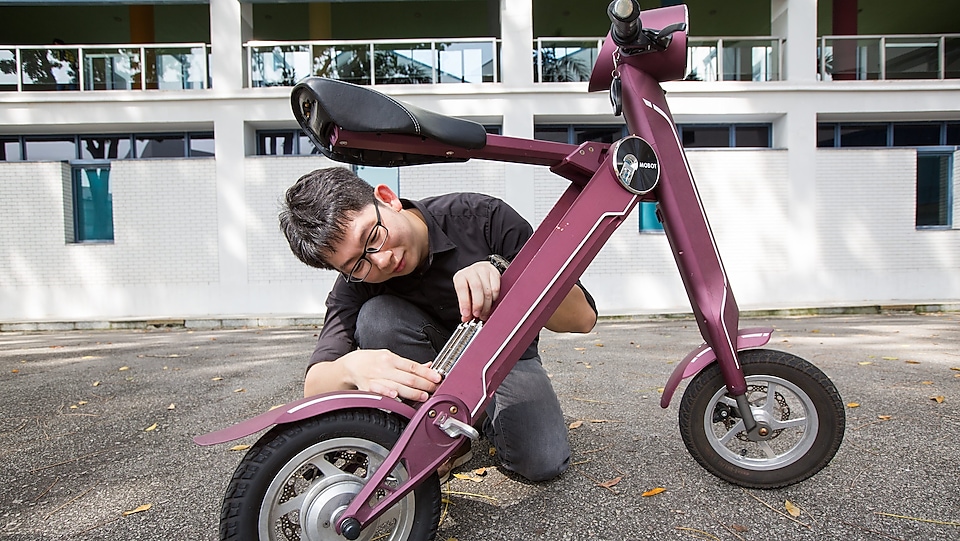
Duralite: Taking Hydrogen mainstream
As a university student, Meng Seng felt lost about his future. “Honestly speaking, I didn’t know what I wanted to do, I was just planning to join a semiconductor company after I graduated,” he admits.
By Duralite: Taking Hydrogen mainstream on Nov 30, 2020
This changed after he attended a guest lecture given by Dr Ling Chun Yu. Dr Ling had founded Duralite, and would soon be Meng Seng’s mentor.
A spin-off company from Temasek Polytechnic, Duralite was started to commercialise Hydrogen Fuel Cell technology in 2015. A pioneer in Singapore for fuel cells, the institute had been researching the technology for more than a decade.
“His lecture got me to think about what’s next after fossil fuels. It is well documented that Singapore has limitations in generating electricity via renewable energy (wind, solar, hydro etc). This is due to our small size and lack of natural resources. Hydrogen is a more viable, clean option as we can import it from neighbouring countries. It is also easily stored and transported,” shares Meng Seng.
He decided on the spot that this would be his new career. Since joining Duralite as their key R&D engineer more than four years ago, he has not looked back.
At Duralite, Meng Seng collaborates mainly with Temasek Polytechnic (TP). “One of my most fulfilling moments was when our fuel cell was used in the TP student team’s hydrogen fuel cell vehicle for the Shell Eco-marathon (SEM) 2018. Our vehicle was ranked the best in terms of overall energy efficiency and reliability, proving that hydrogen is the next energy frontier,” recalls Meng Seng.

While he finds the work exciting, Meng Seng recognises Duralite’s challenges in growing as a start-up in the hydrogen energy space. “Singapore has a rather conservative attitude towards hydrogen. At this point, there are no defined rules and regulations on how it can be used in the public,” he says. He believes Singapore will adopt a wait-and-see approach and prefer the technology to be tested elsewhere.
His main goal now is two-fold. First, he hopes to work with different partners to educate the public on hydrogen’s potential as a clean, safe source of energy. “The public perception is still that vision of the Hindenburg blimp consumed by fire in mid-air. It is now much safer to use and store hydrogen.”
Some of the partners he is keen to work with are suppliers in the hydrogen supply chain such as cylinder manufacturers and refilling solution providers. He hopes they will join his quest to update the public on new knowledge and safety measures that have been developed to store and handle the gas.
Second, Duralite is also working hard to bring their fuel cells into everyday products such as proof-of-concept e-scooters. “We want to let people try products powered by hydrogen for themselves. That is the best way to gain trust and confidence in adopting the use of hydrogen fuel cells,” he adds.

Meng Seng believes the public perception will change when they see it in use in a real-world application. Countries like China, Germany, South Korea and Japan have already designed guidelines for the use hydrogen fuel cells. “We are in talks with a German company to test our products there,” he reveals. “We want to be the first to explore and learn from these markets so we can share it with companies that want to adopt the technology.”
No longer lost, Meng Seng dreams of the day he can cruise on Singapore’s streets in a hydrogen-powered car.